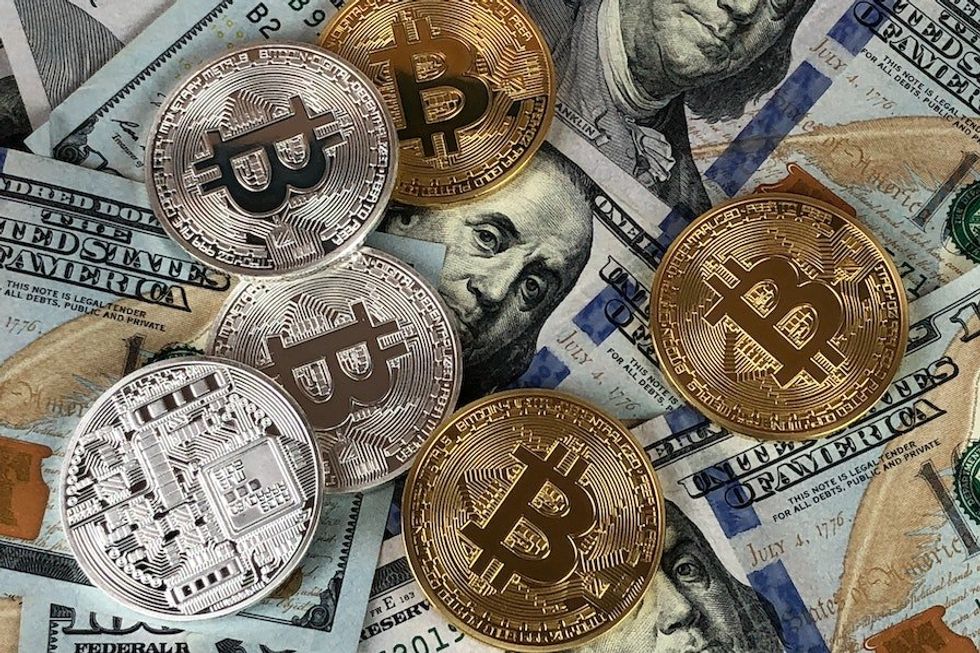Cryptocurrency regulation is back in the spotlight as two leading exchanges find themselves in the middle of the US Securities and Exchange Commission’s (SEC) latest attempt to rein the industry in.
The SEC brought charges against Coinbase Global (NASDAQ:COIN) on Tuesday (June 6), just a day after it did the same for Binance and its founder Changpeng Zhao. According to experts, the back-to-back lawsuits against these crypto firms highlight the increased aggression the regulator is willing to take to monitor the space.
What are the allegations against Binance and Coinbase?
The SEC is attempting to get a firmer grasp on transactions involving cryptocurrencies, and has thrown heavy accusations at Binance. Per the SEC’s charges, Binance, controlled by Zhao, operated as an exchange, a broker, a dealer and a clearing agency that earned at least US$11.6 billion in revenue from customer fees.
The regulator notes that Binance should have been registered as an exchange, a broker-dealer and a clearing agency
SEC Chair Gary Gensler said the 13 charges brought against Zhao and Binance show an extensive web of deception, conflicts of interest, a lack of disclosure and calculated evasion of the law by the accused parties.
“They attempted to evade US securities laws by announcing sham controls that they disregarded behind the scenes so that they could keep high-value U.S. customers on their platforms,” he said in a press release. “The public should beware of investing any of their hard-earned assets with or on these unlawful platforms.”
The Guardian reported that Binance responded to the SEC by saying it has been compliant with questions from the regulator and “was looking to negotiate a settlement with the agency.”
In regards to Coinbase, the SEC argues that the crypto firm violated “certain registration provisions” of the Securities Exchange Act of 1934, as well as “the securities offering registration provisions” of the Securities Act of 1933.
“As alleged in our complaint, Coinbase was fully aware of the applicability of the federal securities laws to its business activities, but deliberately refused to follow them,” Gurbir S. Grewal, director of the SEC’s Division of Enforcement, said in a statement.
He added, “While Coinbase’s calculated decisions may have allowed it to earn billions, it’s done so at the expense of investors by depriving them of the protections to which they are entitled.”
Overall, the SEC is expressing discomfort with the role Binance and Coinbase play in buying and selling crypto assets, and is coming down on their alleged manipulation of the market.
“The US regulator contends that most digital assets qualify as securities, and exchanges have been selling them to American investors without being appropriately registered in the US,” Matteo Greco, research analyst at Fineqia International (CSE:FNQ,OTC Pink:FNQQF), said. He pondered whether the SEC’s actions could be replicated across jurisdictions, creating new precedents.
Frank Borger Gilligan, a securities attorney and former top securities regulator for the state of Tennessee, made a similar point. “The SEC’s actions indicate that crypto is headed toward regulation that’s similar to securities, which should be a wakeup call for existing exchanges to modify the way they do business,” he commented.
Experts weigh in on impact of the SEC’s charges
Nick Kuriya, portfolio manager and head of crypto with Purpose Investments, told the Investing News Network (INN) he was not surprised to see the SEC’s string of charges against Binance and Coinbase.
The financial expert said most of his conversations with investors this week have involved to “a lot of curiosity” from those wanting to know more about why these companies have been charged.
Kuriya said he believes the SEC’s charges should not affect the underlying thesis for cryptocurrency investments. He added that the SEC’s regulation attempts have a specific focus on how crypto tokens are sold to investors.
“What it doesn’t impact is kind of the underlying technology and the utility of these digital assets and crypto,” he said.
Purpose Investments has launched several cryptocurrency-related exchange-traded funds (ETFs) as a way to offer investors alternatives for accessing the digital asset space. In May, the firm announced an agreement under which Coinbase will “act as an additional sub-custodian for the funds (Purpose) manages that hold digital assets.”
“What’s really sort of at play here is effectively the classification of these crypto assets,” Kuriya told INN. The expert shared the following additional thoughts on how the SEC may be focusing in this review:
“Should (cryptocurrencies) be considered commodity use? Should they be considered securities? And if they are securities, and they’re sold, what kind of disclosures need to be made to investors? What kind of safeguards need to be put in place in terms of operating procedures, compliance? That’s really, I think, what the SEC is kind of focused on.”
In an emailed note, Will Paige, a crypto analyst at Insider Intelligence, said the SEC has been tasked with regulating the crypto space in the “absence of a regulatory framework in the US.”
In his view, this latest attempt by the SEC represents a wider crackdown on noncompliance. “Crypto firms may find out the hard way that operating by the ‘better to ask forgiveness than permission’ theory lands them in hot water,” Paige said.
The expert that added these suits are likely to “knock already weak consumer confidence in cryptocurrencies.”
The crypto community has expressed uneasiness with the SEC’s charges and their financial impact on the market.
“This is a bad faith lawsuit against a crypto platform that has made every effort to comply with the law,” said Adam Kovacevich, CEO of the Chamber of Progress. “If we want a safe crypto industry here in the US, we should be encouraging the kind of regulatory compliance that Coinbase has shown a willingness to pursue.”
Impact for Coinbase, Binance and Bitcoin
Coinbase is publicly traded, and it suffered a heavy drop in value after the SEC’s charges.
As of 10:43 a.m. EDT on Wednesday (June 7), Coinbase was trading at a price point of US$52.61, a serious drop compared to its year high of US$83.99. It has plummeted by 16.81 percent so far this week.
When it comes to Binance, investors pulled a record US$791.6 million out of the exchange after the charges against the company became public, as per crypto research firm Nansen.
Bitcoin, the leading cryptocurrency, also took a hit following the initial charges against Binance and Zhao.
After dropping to a monthly low of US$25,750 on Monday (June 5), Bitcoin bounced back after the allegations against the crypto exchanges, recovering to a price point of over US$27,000 on Tuesday.
Bitcoin is now trading at $26,430, up nearly 60 percent year-to-date.
Investor takeaway
The cryptocurrency space has so far shown unparalleled resiliency when it comes to challenges from regulators. While the industry continues to face questions about regulation, experts still believe in the potential attached to digital assets.
“Hopefully through this process the industry and investors get more clarity, because I think everybody’s looking for clarity,” Kuriya said.
FAQs for Binance and Coinbase
Will the SEC freeze the assets of Binance and Coinbase?
It’s currently difficult to project what will happen to the assets held by Binance and Coinbase. However, it’s clear that investors using both platforms have been spooked by the charges — this has caused them to look for alternatives when it comes to providers in the digital asset investment class.
What do the SEC’s charges mean for Coinbase shares?
After being charged by the SEC, shares of Coinbase dropped significantly in value. The company continues to trade on the NASDAQ, and the firm closed at a price per share of US$51.61 the same day it was charged by the SEC.
What do the SEC’s charges against Coinbase and Binance mean for Bitcoin?
While Bitcoin saw an initial drop in its price when the SEC brought charges against Binance and Coinbase, the cryptocurrency ended up bouncing back and quickly stabilized above US$26,000.
Don’t forget to follow us @INN_Resource for real-time updates!
Securities Disclosure: I, Bryan Mc Govern, hold no direct investment interest in any company mentioned in this article.
Editorial Disclosure: The Investing News Network does not guarantee the accuracy or thoroughness of the information reported in the interviews it conducts. The opinions expressed in these interviews do not reflect the opinions of the Investing News Network and do not constitute investment advice. All readers are encouraged to perform their own due diligence.






